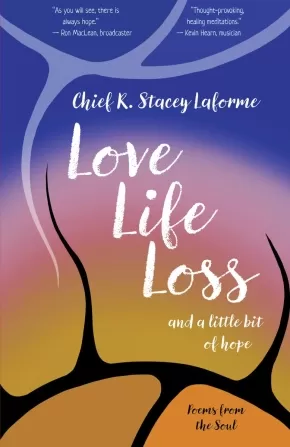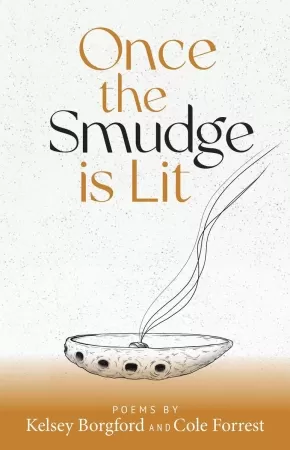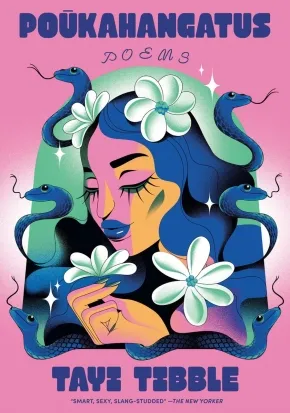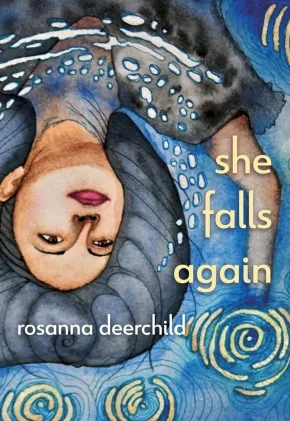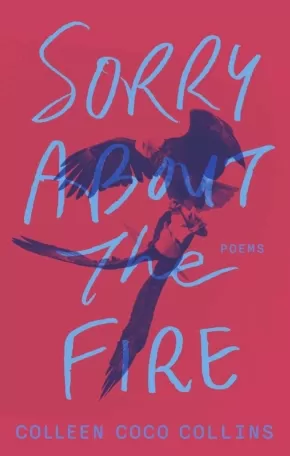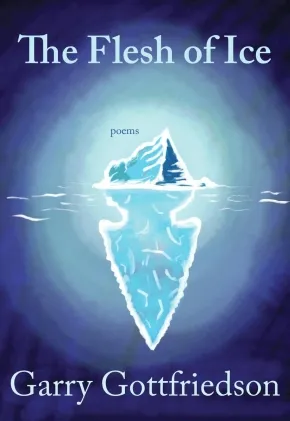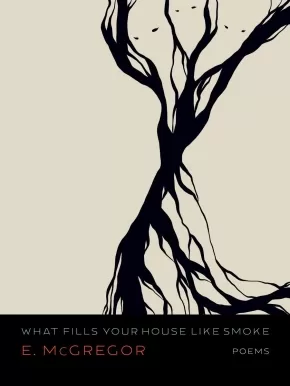
Poetry
31
-
45
of
187 Results;
Sort By
Go To
of 13
Liturgy of Savage No. 82
$20.00
Format:
Paperback
Text Content Territories:
Indigenous Canadian; First Nations; Innu (Montagnais-Naskapi);
ISBN / Barcode: 9781773860664
Synopsis:
Synopsis:
Originally from the community of Ekuanitshit (Mingan) in the Lower North Shore region of Quebec, Cousineau-Mollen was adopted at a very young age by an urban family as part of what is now known as the Sixties Scoop. Although Cousineau-Mollen did not grow up in an Indigenous community, her adoptive family maintained contact with her biological family, ensuring she remained connected to her culture and identity. Having faced adversity and rejection during her studies at Laval University due to her Indian Status, she has since worked to build and support community initiatives, through Aboriginal student associations and involvement in the Wolf Pack Street Patrol, for the Indigenous homeless people of Montreal. In The Liturgy of Savage No. 82, Cousineau-Mollen reclaims, honours, and makes space for herself and the rights of Indigenous women. A powerful and emotional poetry collection, The Liturgy of Savage No. 82 explores the realities facing Indigenous women in Canada and the emotional impact of homelessness, intergenerational trauma and systemic racism, all through a feminist lens as she considers the implications of femininity and identity in relation to the unceded land of her people.
Reviews
“Cousineau-Mollen’s poetry embodies resilience, and how the impact of colonization has affected Indigenous peoples, and First Nation women in particular.”—Shannon Webb-Campbell, Muskrat Magazine on Bréviaire du matricule 082 (Éditions Hannenorak, 2019)
"Originally published in French, Mollen’s Liturgy of Savage No. 82 is a deep and profound poetic exploration that examines themes such as colonization, residential schools, the Indian Act, feminism, and resistance. Mollen’s work is a reclaiming—through language and cultural resurgence—and requires recognition of both the oppressed and empowered experiences of an Indigenous woman in Canada. This edition also includes a glossary of language terms that invites the reader to experience even deeper understandings through the multidimensional expression of language. Cautions / Content Warnings: Some problematic language (e.g., “squaw”), and sexual content and themes." - Lori B., Indigenous Educator & Administrator, Indigenous Books for Schools
Educator Information
This book is included in the Indigenous Books for Schools database from the Association of Book Publishers of BC. It is recommended for Grades 10 to 12 for English Language Arts, Art, and Social Studies.
Content Warning: Sexual content and strong language.
Additional Information
72 pages | 5.50" x 8.00" | Paperback
Love Life Loss and a little bit of hope: Poems from the Soul
$24.95
Format:
Paperback
Text Content Territories:
Indigenous Canadian; First Nations; Anishinaabeg; Ojibway; Mississaugas;
Reading Level: N/A
ISBN / Barcode: 9781990735431
Synopsis:
Synopsis:
“We should not have to change to fit into society the world should adapt to embrace our uniqueness.” -- Chief Stacey Laforme
Chief Stacey Laforme breathes life into every poem and story he shares, drawing from his own experiences. Rich with the essence of his soul, the poems in this book capture the moments and emotions that have shaped him. His desire is for readers to not just read, but to truly feel the humour and pain intertwined in these poems. Much like in Living in the Tall Grass, this latest poetry collection invites non-Indigenous people to see through the eyes of Indigenous people with topics of peace and humanity, as well as grief, trauma ... and hope.
Reviews
"Thought provoking, healing meditations. Giima Laforme writes from his perspective as a son, father, husband, community leader, but most of all as a human being. He invites us to walk with him, and to see the world as he sees it. Not only is this an invitation we should accept, but it is also a beautiful and generous gift." — Kevin Hearn, musician
"Chief Stacey Laforme writes with the motive of love, and poetry is his instrument. When considering the unmarked graves at residential schools, Chief Laforme’s poem ‘Debwewin—Truth’ freezes you with the line, “She felt the shovels enter her body.” But as you will see, there is always hope. Chief has both the scalpel and the suture. He cuts, then he cures." —Ron MacLean, broadcaster
Additional Information
160 pages | 8.50" x 5.50" | Paperback | 3 b&w illustrations
Once the Smudge is Lit
$20.00
Artists:
Format:
Paperback
Text Content Territories:
Indigenous Canadian; First Nations; Anishinaabeg; Ojibway; Nipissing First Nation;
Reading Level: N/A
ISBN / Barcode: 9781928120407
Synopsis:
Synopsis:
Ceremony, community and connection - the poems of Once the Smudge is Lit carry the reader into deeply spiritual elements of Nishnaabe/Ojibwe culture. Co-written by Cole Forrest and Kelsey Borgford, the poetry of Once the Smudge is Lit highlights the Indigenous experience in post-colonial times through explorations of themes ranging from love to community. Bogford's and Forrest's verses seek to open a multidimensional window into the experience of being a contemporary Nishaabe. A profound sense of movement, connection, and continuity is emphasized by Tessa Pizzale's beautifully evocative illustrations, which include a line of smudge smoke that flows from page to page from beginning to end.
Additional Information
50 pages | 5.50" x 8.50" | 50 Illustrations | Paperback
Poukahangatus: Poems
$24.95
Format:
Paperback
Text Content Territories:
Indigenous Polynesian; Indigenous New Zealander; Maori; Ngati Porou; Te Whanau-a-Apanui;
Reading Level: N/A
ISBN / Barcode: 9780593467893
Synopsis:
Synopsis:
An acclaimed young poet explores her identity as a twenty-first-century Indigenous woman. Poem by poem, Tibble carves out a bold new way of engaging history, of straddling modernity and ancestry, desire and exploitation.
Intimate, moving, virtuosic, and hilarious, Tayi Tibble is one of the most exciting new voices in poetry today. In Poūkahangatus (pronounced “Pocahontas”), her debut volume, Tibble challenges a dazzling array of mythologies—Greek, Māori, feminist, kiwi—peeling them apart, respinning them in modern terms. Her poems move from rhythmic discussions of the Kardashians, sugar daddies, and Twilight to exquisite renderings of the natural world and precise emotions (“The lump in her throat swelled like a sea that threatened to take him from her, and she had to swallow hard”). Tibble is also a master narrator of teenage womanhood, its exhilarating highs and devastating lows; her high-camp aesthetics correlate to the overflowing beauty, irony, and ruination of her surroundings.
These are warm, provocative, and profoundly original poems, written by a woman for whom diving into the wreck means taking on new assumptions—namely, that it is not radical to write from a world in which the effects of colonization, land, work, and gender are obviously connected. Along the way, Tibble scrutinizes perception and how she as a Māori woman fits into trends, stereotypes, and popular culture. With language that is at once colorful, passionate, and laugh-out-loud funny, Poūkahangatus is the work of one of our most daring new poets.
Reviews
“This chatty, winsome debut by a young New Zealand poet mines family history, Maori myth and the residue of pop culture to fashion a striking sensibility.”—The New York Times Book Review
“Tibble writes wittily of the hunger games of adolescence. . . . However lost their youthful personas, these wise poems know exactly where they are heading.”—David Wheatley, The Guardian
“Tibble’s smart, sexy, slang-studded verse is fanciful and dramatic, reveling in the pains and the pleasures of contemporary young womanhood yet undergirded by an acute sense of history. Her voice remains sure-footed across many registers, and the book, at its best, functions as an atlas for learning to explore the world on one’s own terms.”—The New Yorker
“In Tibble’s seismic debut, the young poet’s rollicking, indignant, and invigorating narratives contend with history and navigate what it means to be millennial, female, and of Māori descent. Tibble stares unblinkingly at bigotry, her ferocity consuming the male, white, evangelical gaze she encounters. . . . Tibble’s kinetic use of language makes this an exciting and memorable debut.”—Publishers Weekly (starred review)
Additional Information
96 pages | 5.85" x 8.34" | Paperback
Rangikura: Poems
$37.99
Format:
Hardcover
Text Content Territories:
Indigenous Polynesian; Indigenous New Zealander; Maori; Ngati Porou; Te Whanau-a-Apanui;
Reading Level: N/A
ISBN / Barcode: 9780593534625
Synopsis:
Synopsis:
A fiery second collection of poetry from the acclaimed Indigenous New Zealand writer that U.S. Poet Laureate Joy Harjo calls, “One of the most startling and original poets of her generation.”
Tayi Tibble returns on the heels of her incendiary debut with a bold new follow-up. Barbed and erotic, vulnerable and searching, Rangikura asks readers to think about our relationship to desire and exploitation. Moving between hotel lobbies and all-night clubs, these poems chronicle life spent in spaces that are stalked by transaction and reward. “I grew up tacky and hungry and dazzling,” Tibble writes. “Mum you should have tied me/to the ground./Instead I was given/to this city freely.”
Here is a poet staking out a sense of freedom on her own terms in times that very often feel like end times. Tibble’s range of forms and sounds are dazzling. Written with Māori moteatea, purakau, and karakia (chants, legends, and prayers) in mind, Rangikura explores the way the past comes back, even when she tries to turn her back on it. “I was forced to remember that,/wherever I go,/even if I go nowhere at all,/I am still a descendent of mountains.”
At once a coming-of-age and an elegy to the traumas born from colonization, especially the violence enacted against indigenous women, Rangikura interrogates not only the poets’ pain, but also that of her ancestors. The intimacy of these poems will move readers to laughter and tears. Speaking to herself, sometimes to the reader, these poems arc away from and return to their ancestral roots to imagine the end of the world and a new day. They invite us into the swirl of nostalgia and exhaustion produced in the pursuit of an endless summer. (“My heart goes out like an abandoned swan boat/ghosting along a lake”). They are a new highpoint from a writer of endless talent.
Reviews
"When Tayi Tibble was eight, she decided she’d be a writer...Despite a slew of accomplishment at just 28—including, but not limited to, being the first Māori writer published in The New Yorker and an appearance in in Lorde’s Solar Power music video—she remains miraculously humble....Rangikura, her incendiary second collection, hits bookshelves this week in the States...[In it] Tibble nimbly zig zags from comedic lines about the Kardashians to reflections on ancestral trauma, colonization and love affairs." —Eloise King-Clements, Interview Magazine
Additional Information
96 pages | 6.19" x 8.66" | Hardcover
Removal Acts
$24.00
Format:
Paperback
Text Content Territories:
Indigenous American; Native American; Sioux; Dakota;
Reading Level: N/A
ISBN / Barcode: 9781644452530
Synopsis:
Synopsis:
Drawing its title from the 1863 Federal Act that banished the Dakota people from their homelands, this remarkable debut collection reckons with the present-day repercussions of historical violence. Through an array of brief lyrics, visual forms, chronologies, and sequences, these virtuosic poems trace a path through the labyrinth of distances and absences haunting the American colonial experiment.
Removal Acts takes its speaker’s fraught methods of accessing the past as both subject and material: family photos, the fragile artifacts of primary documents, and the digital abyss of web browsers and word processors. Alongside studies of two of her Dakota ancestors, Lynch has assembled an intimate record of recovery from bulimia, insisting that self-erasure cannot be separated from the erasures of genocide. In these rigorous, scrutinizing examinations of “removal” in its many forms—as physical displacement, archival absence, Whiteness, and vomit—Lynch has crafted a harrowing portrait of the entwined relationship between the personal and historical. The result is a powerful affirmation of resilience and resolute presence in the face of eradication.
Reviews
"In this sharp debut, words are bracketed and struck through, placed in columns and alongside arrows. . . . With each deliberate letter, Lynch deconstructs a violent past and present, while allowing herself and the reader to search for paths toward an as-yet unknown future."—Dasia Moore, The Boston Globe
"Erin Marie Lynch’s debut poetry book, Removal Acts, is a deeply personal, formally inventive investigation into history, ancestry, and loss. . . . Throughout the work, Lynch’s language remains precise, compassionate, inquisitive, and vulnerable."—Mathangi Subramanian, BOMB Magazine
"Lynch interweaves the stories of two of her ancestors with her own recovery from bulimia to explore the twinned legacies of historical and self erasure. The result is a moving meditation on 'removal' in its many forms that melds together the personal and historical to craft a testament to Indigenous resilience and survival in the face of eradication."—Eliza Browning, Electric Literature
"Removal Acts is a rich and fraught collection that confronts the legacy of displacement and erasure with searing honesty. Debut author Erin Marie Lynch does not shy away from hard questions, including her right to some of the stories in her collection. . . . Removal Acts combines technical prowess and attention to craft with deliberate experimentation, signaling Lynch as a poet with talent that far surpasses expectations for a debut author."—Ronnie K. Stephens, The Poetry Question
Additional Information
136 pages | 7.05" x 8.97" | Paperback
She Falls Again
$23.95
Format:
Paperback
Text Content Territories:
Indigenous Canadian; First Nations; Cree (Nehiyawak);
Reading Level: N/A
ISBN / Barcode: 9781552454879
Synopsis:
Synopsis:
The Sky Woman has returned to bring down the patriarchy!
This book is about a poet who may or may not be going crazy, who is just trying to survive in Winnipeg, where Indigenous people, especially women, are being disappeared. She is talking to a crow who may or may not be a trickster, and who brings a very important message: Sky Woman has returned, and she is ready to take down the patriarchy.
This is poetry, prose and dialogue about the rise and return of the matriarch. It’s a call to resistance, a manifesto to the female self.
Cree poet and broadcaster Rosanna Deerchild is an important voice for our time. Her poems – angry, funny, sad – demand a new world for Indigenous women.
Awards
- 2025 Indigenous Voices Awards - Poetry in English Award
Additional Information
96 pages | 5.00" x 8.00" | Paperback
Songs From the Asylum
$19.95
Format:
Paperback
Text Content Territories:
Indigenous Canadian; Métis; First Nations; Cree (Nehiyawak); Plains Cree; Muskeg Lake Cree Nation;
Reading Level: N/A
ISBN / Barcode: 9781772312379
Synopsis:
Synopsis:
For over twenty years, Nehiyawak-Metis artist and author John Brady McDonald’s day job has been working with youth. Over half of that time was spent as a Frontline Youth Outreach Worker on the streets of Prince Albert, Saskatchewan. During that time, John would write down his thoughts and feelings on scraps of paper and in little black hardcover notebooks, chronicling the struggles and traumas of the youth he worked with and which he himself had also experienced. Never being quite the right fit for his other poetry books, John took these poems and hid them away for years, until now. Recently rediscovered in his archives, John has compiled them, using a 54-year-old typewriter, into a work which gives voice to the experiences and resilience of those youth, along with his own experiences, thoughts and recollections of a poet in the midst of a turbulent moment in time amongst the concrete and asphalt of the city.
Educator & Series Information
This book is part of the Modern Indigenous Voices series.
Additional Information
88 pages | 5.50" x 8.50" | Paperback
Sorry About the Fire
$19.95
Format:
Paperback
Text Content Territories:
Indigenous Canadian; First Nations; Anishinaabeg; Odawa (Ottawa);
Reading Level: N/A
ISBN / Barcode: 9781771966139
Synopsis:
Synopsis:
I wanted a good bewildering, / down deep, / as the keep of a castle.
With a voice as ungovernable and determined as Prometheus—who stole fire from Zeus only to face dire consequences—Colleen Coco Collins' debut poems are daring dispatches from beyond the margins: light-filled flares sent up from the edge of language, sentience, land, and story. Drawing on all of her multidisciplinary enamorations and rendered through the triple vision of her Irish, French, and Odawa heritage, Sorry About the Fire introduces not just a poet, but a stunningly original sensibility.
Reviews
"Fealty to the sentient. To every mostleast thing, to every impulse (sentient), gesture (sentient). Re-resourcing language to equip it to be fit: bawaajigan. telamon. mothaitheacht ... Collins' Sorry About the Fire is the story of a dark time, in which the strike of language on the texture of reality sounds a sharp off-note—and sparks; and/or the story of a light-drenched time in which a sensibility cracks open, beholding/becoming."—Luke Hathaway, author of The Affirmations
"Colleen Coco Collins employs vocabulary as a joyful precision tool, re-earthing the intimate relations between wonder, grief, and the more-than-human world. Embodying the playful and destructive energy of the cosmos, her poems vibrate like some kind of ancient, sacred rock & roll."—Shary Boyle
Additional Information
64 pages | 5.00" x 8.00" | Paperback
South Side of a Kinless River
$23.95
Format:
Paperback
Reading Level: N/A
ISBN / Barcode: 9781771316316
Synopsis:
Synopsis:
A nuanced, relational, and community-minded new book from one of Canada's preeminent poets.
South Side of a Kinless River wrestles with concepts of Métis identity in a nation and territory that would rather erase it. Métis identity, land loss, sexual relationships between Indigenous women and European men, and midwifery by Indigenous women of the nascent settler communities figure into these poems. They add up to a Métis woman's prairie history, one that helps us feel the violence in how those contributions and wisdoms have been suppressed and denied.
Reviews
"Each poem is an anthem, every page showcasing the talent and necessity of this incredible poetic voice. Dumont brings the Métis tone, cadence and intricate stitch-work into all she creates." - Cherie Dimaline, author of The Marrow Thieves and Empire of the Wild
"The voice of this Métis woman is as loving, tender and humane, as it is powerful, satirical and political..."- Rita Bouvier, author of a beautiful rebellion
Additional Information
80 pages | 5.75" x 8.50" | Paperback
Teeth: Poems
$19.95
Format:
Paperback
Text Content Territories:
Indigenous Canadian; First Nations; Cree (Nehiyawak); Woodland Cree; Woods Cree; Swan River First Nation;
Reading Level: N/A
ISBN / Barcode: 9780889714526
Synopsis:
Synopsis:
This is a book about grief, death and longing. It’s about the gristle that lodges itself deep into one’s gums, between incisors and canines.
Teeth details not only the symptoms of colonization, but also the foundational and constitutive asymmetries that allow for it to proliferate and reproduce itself. Dallas Hunt grapples with the material realities and imaginaries Indigenous communities face, as well as the pockets of livability that they inhabit just to survive. Still this collection seeks joy in the everyday, in the flourishing of Indigenous Peoples in the elsewhere, in worlds to come.
Nestling into the place between love and ruin, Teeth traces the collisions of love undone and being undone by love, where “the hope is to find an ocean nested in shoulders—to reside there when the tidal waves come. and then love names the ruin.”
Additional Information
112 pages | 5.50" x 8.00" | Paperback
The Dialogues: The Song of Francis Pegahmagabow
$22.00
Format:
Paperback
Text Content Territories:
Indigenous Canadian; First Nations; Anishinaabeg; Ojibway; Wasauksing First Nation;
Reading Level: N/A
ISBN / Barcode: 9781989496916
Synopsis:
Synopsis:
In The Dialogues: The Song of Francis Pegahmagabow, award-winning author Armand Garnet Ruffo brings to life not only the story of the famed WWI Indigenous sniper, but also the complexities of telling Indigenous stories. From Manitoulin Island to the trenches of WWI to the stage, Ruffo moves seamlessly through time in these poems, taking the reader on a captivating journey through Pegahmagabow’s story and onto the creation of Sounding Thunder, the opera based on his life. Throughout, Ruffo uses the Ojibwe concept of two-eyed seeing, which combines the strengths of western and Indigenous ways of knowing, and invites the reader to do the same, particularly through the inclusion of the Anishinaabemowin language within the collection. These are poems that challenge western conventions of thinking, that celebrate hope and that show us a new way to see the world.
Additional Information
120 pages | 6.00" x 9.00" | Paperback
The Flesh of Ice
$20.00
Format:
Paperback
Text Content Territories:
Indigenous Canadian; First Nations; Salish; Interior Salish; Secwepemc (Shuswap);
Reading Level: N/A
ISBN / Barcode: 9781773861579
Synopsis:
Synopsis:
The Secwépemc term le estcwicwéy̓ (the missing) was given by Secwépemc elders who dedicated their knowledge and time to guide the community through the hell they were forced to endure in May 2021. Garry Gottfriedson’s The Flesh of Ice picks up the thread of his 2021 collection, Bent Back Tongue, describing the history and relationship of Indigenous people in Canada with the Canadian government and the Catholic church. Here is the story of those who survived Kamloops Indian Residential School (KIRS), and stories of descendants of KIRS who remembered "the missing” in the wake of the discovery of unmarked graves at the KIRS. Here, in hauntingly visceral poems, are the living conditions, policies and practices of the school itself, the stories of those who lived there, and the names of practitioners of the school, called out and cursed. Lastly, personal stories are given space to reclaim the narrative, taking readers on a journey of resilience, survival, pain and joy.
Reviews
"Drawing on the work of the late legal scholar Patricia Monture-Angus, I find fitting words for this book and for the former students of KIRS: first we were victims, then we were survivors and now we are warriors. Those warriors have now become teachers—teachers for those who learn to listen to the voices in this book."—from the prologue by Celia Haig-Brown
Additional Information
126 pages | 5.50" x 8.00" | Paperback
The Glass Lodge: 20th Anniversary Edition
$34.99
Format:
Hardcover
Text Content Territories:
Indigenous Canadian; First Nations; Cree (Nehiyawak); Métis;
Reading Level: N/A
ISBN / Barcode: 9781998273119
Synopsis:
Synopsis:
A new edition, revised and updated by the author, of John Brady McDonald’s acclaimed debut poetry collection
John Brady McDonald, MBSFA, a Nêhiyawak-Métis multidisciplinary artist and writer from Treaty Six Territory in Saskatchewan, Canada, is an award-winning author of multiple books who has presented at literary festivals around the world. Before all this, however, he was a young, urban Indigenous youth, struggling with addictions, the streets, and the pain and turmoil of intergenerational trauma as a residential school survivor and the child of residential school survivors.
These raw, lyrical poems are a glimpse of the birth of a poet, recklessly using language and words with abandon and without restraint. It is the poetry of an individual experimenting with the language, influenced by the works of Shakespeare and Jim Morrison, mixed with the teenage goth writing style of youth—the base metals from which a lifetime of words was forged.
Originally published by Kegedonce Press in 2004, The Glass Lodge was presented across Canada and the US at esteemed festivals. Chosen for the First Nations Communities Read program, it was also nominated for the Anskohk Aboriginal Book of the Year in 2005. Since that first edition went out of print a few years ago, McDonald has re-edited and restored the work. He also rediscovered many of the original, handwritten poems, which serve as illustrations in this new edition.
Reviews
"The Glass Lodge transcends all the cliches of the angst-ridden Urban Indian. McDonald's verse is a brilliant fusion of the brutality and hope that is inherent in the Aboriginal experience. I have never read poetry that so closely resembles my own experience as a First Nations man." - Darrell Dennis, Writer, Tales of an Urban Indian, Moccasin Flats
Additional Information
74 pages | 6.00" x 8.50" | Hardcover | 2nd Edition
What Fills Your House Like Smoke
$19.95
Format:
Paperback
Text Content Territories:
Indigenous Canadian; Métis;
Reading Level: N/A
ISBN / Barcode: 9781771872522
Synopsis:
Synopsis:
In these poems, E. McGregor combines the lore of family history with personal memory, vividly parsing patterns of inheritance, particularly through the maternal line.
What Fills Your House Like Smoke begins and ends at the deathbed of the writer's Metis grandmother. In between, McGregor composes an incomplete and wildly imaginative biography of the grandmother, interrogated by family photographs, stories, and the scant paper trail she left behind.
McGregor sifts through the complexities of motherhood, daughterhood, anxiety, intimate relationships and addiction, weaving family history with memory to make sense of what is carried on. Especially affecting are poems about childhood, and the people who disappear from a child's life, and the struggle to live as a societal outsider, finding strength in self-definition and the power of narrative.
As these poems unfold, they move us toward an understanding of maternal inheritance, shifting identities, forgiveness, and finally love.
Reviews
"There is a rawness and tender vulnerability in the re-membering of a mother's mother's life in the thematic dotted lines, hardlines and blurred lines of McGregor's poetry. For bodies under duress, survival is instinctive and passed on, and a breakthrough from the trauma endured is made possible in an honest remembering to liberate oneself." -- Rita Bouvier, author of a beautiful rebellion
"What Fills Your House Like Smoke is a staggering collection . . . technically agile and thematically nuanced. McGregor's poems have the effect of flame, sucking the air out of the room; of a soothing hand on your chest, reminding you to breathe. An indelible debut." -- Hollay Ghadery, author of Rebellion Box
Additional Information
90 pages | 6.00" x 8.00" | Paperback
Sort By
Go To
of 13




